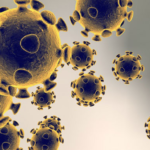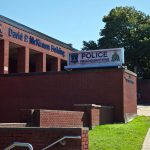As of today, Nov. 30, Nova Scotia has 138 active cases of COVID-19. Sixteen new cases were identified Sunday, Nov. 29.
Fifteen of the new cases are in Central Zone. The other is a school-based case and was reported last night, Nov. 29, and is connected to the Northeast Kings Education Centre in Canning, Kings. Co., in Western Zone.
“We continue to see strong interest in the asymptomatic pop-up rapid testing locations, which shows Nova Scotians, including young Nova Scotians, are taking this virus seriously,” said Premier Stephen McNeil. “I want to thank all who have come out for a test, as well as the volunteers and health staff at the sites. We are also seeing impressive test numbers at the labs, a reflection of the hard work of staff there. These are important pieces of our collective effort to contain the virus.”
Nova Scotia Health Authority’s labs completed 3,054 Nova Scotia tests on Nov. 29.
There were 628 tests administered at the rapid-testing pop-up site in Dartmouth yesterday and six positive results. The individuals were directed to self-isolate and have been referred for a standard test.
Since Oct. 1, Nova Scotia has had 47,457 negative test results, 216 positive COVID-19 cases and no deaths. No one is currently in hospital. Cases range in age from under 10 to over 70. Seventy-eight cases are now resolved. Cumulative cases may change as data is updated in Panorama.
“The Town of Wolfville announced a few days ago that an experimental research has detected COVID-19 in the town’s wastewater,” said Dr. Robert Strang, Nova Scotia’s chief medical officer of health. “Although it is not definitive, it could be a sign that COVID-19 has found its way into that community. We have increased our capacity for testing at the primary assessment centre in the area and have set up a pop-up rapid testing location for asymptomatic people in Wolfville today, Nov. 30.”
Visit https://covid-self-assessment.novascotia.ca/ to do a self-assessment if in the past 48 hours you have had or you are currently experiencing:
— fever (i.e. chills/sweats) or cough (new or worsening)
Or:
Two or more of the following symptoms (new or worsening):
— sore throat
— runny nose/ nasal congestion
— headache
— shortness of breath
Call 811 if you cannot access the online self-assessment or wish to speak with a nurse about your symptoms.
When a new case of COVID-19 is confirmed, public health works to identify and test people who may have come in close contact with that person. Those individuals who have been confirmed are being directed to self-isolate at home, away from the public, for 14 days.
Anyone who has travelled outside of Atlantic Canada must self-isolate for 14 days. As always, any Nova Scotian who develops symptoms of acute respiratory illness should limit their contact with others until they feel better.
It remains important for Nova Scotians to strictly adhere to the public health order and directives – practise good hand washing and other hygiene steps, maintain a physical distance when and where required. Wearing a non-medical mask is mandatory in most indoor public places.
Rules concerning interprovincial travel within Nova Scotia, New Brunswick, Prince Edward Island and Newfoundland and Labrador have changed. The premiers of all four Atlantic provinces are cautioning against non-essential travel into neighbouring provinces. Currently, all non-essential travel into Prince Edward Island, New Brunswick and Newfoundland and Labrador requires a 14-day self-isolation. All public health directives of each province must be followed. Under Nova Scotia’s Health Protection Act order, visitors from outside Atlantic Canada must self-isolate for 14 days unless they completed their self-isolation in another Atlantic province.
Nova Scotians can find accurate, up-to-date information, handwashing posters and fact sheets at https://novascotia.ca/coronavirus .
Source: Release #notw



